2010 Toyota Prius Tires, Repair & Service
Get Started
Complete Auto Care for Your 2010 Toyota Prius
-
TIRES FOR YOUR 2010 Toyota Prius View Tire Info GET TIRE PRICING
-
REPAIR FOR YOUR 2010 Toyota Prius View Repair Info SCHEDULE REPAIR
-
MAINTENANCE FOR YOUR 2010 Toyota Prius View Maintenance Info SCHEDULE MAINTENANCE
-
OFFERS FOR YOUR 2010 Toyota Prius Limited Time Tire Offers VIEW ALL COUPONS
2010 Toyota Prius Tires
Recommended Tires | Tire Information
2010 Toyota Prius Tires Sizes, Speed Ratings, and Inflation
Not sure about your 2010 Toyota Prius tire size? Use the following chart to find information on tire size, speed rating, and inflation.
| Trim Level | Speed Rating | Inflation in PSI F/R | Tire Size |
|---|---|---|---|
| 2010 Toyota Prius Base* | S | 35 PSI/33 PSI | P195/65R15 |
| 2010 Toyota Prius Base* | S | 35 PSI/33 PSI | P195/65R15 |
| 2010 Toyota Prius Base* | S | 35 PSI/33 PSI | P195/65R15 |
| 2010 Toyota Prius Base* | S | 35 PSI/33 PSI | P195/65R15 |
| 2010 Toyota Prius Base* | V | 35 PSI/33 PSI | P215/45R17 |
| 2010 Toyota Prius Base* | V | 35 PSI/33 PSI | P215/45R17 |
| 2010 Toyota Prius Base* | V | 35 PSI/33 PSI | P215/45R17 |
| 2010 Toyota Prius Base* | V | 35 PSI/33 PSI | P215/45R17 |
|
2010 Toyota Prius Base* Speed Rating: S Inflation F/R: 35 PSI/33 PSI |
|
2010 Toyota Prius Base* Speed Rating: S Inflation F/R: 35 PSI/33 PSI |
|
2010 Toyota Prius Base* Speed Rating: S Inflation F/R: 35 PSI/33 PSI |
|
2010 Toyota Prius Base* Speed Rating: S Inflation F/R: 35 PSI/33 PSI |
|
2010 Toyota Prius Base* Speed Rating: V Inflation F/R: 35 PSI/33 PSI |
|
2010 Toyota Prius Base* Speed Rating: V Inflation F/R: 35 PSI/33 PSI |
|
2010 Toyota Prius Base* Speed Rating: V Inflation F/R: 35 PSI/33 PSI |
|
2010 Toyota Prius Base* Speed Rating: V Inflation F/R: 35 PSI/33 PSI |
* Note: these models have different tire sizes depending on vehicle options.
Recommended Tires for Your 2010 Toyota Prius
What tires are best for a 2010 Toyota Prius? Check out the following tire brands and types.
 Blizzak WS90
Blizzak WS90
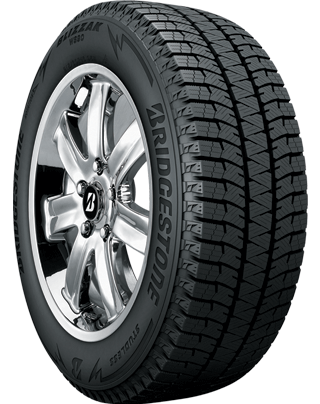
- No warranty
- Winter
- Winter
 Ecopia EP422 Plus
Ecopia EP422 Plus
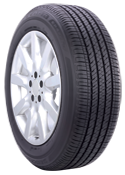
- Platinum Pact Limited Warranty
- All-Season
- Performance
 Turanza QUIETTRACK
Turanza QUIETTRACK
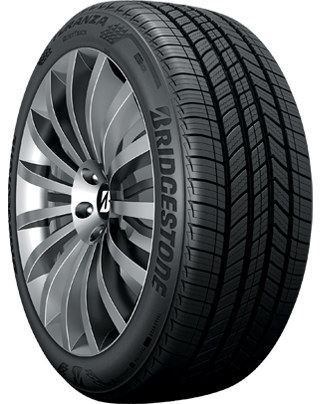
- No warranty
- All-Season
- Performance
 WEATHERPEAK
WEATHERPEAK
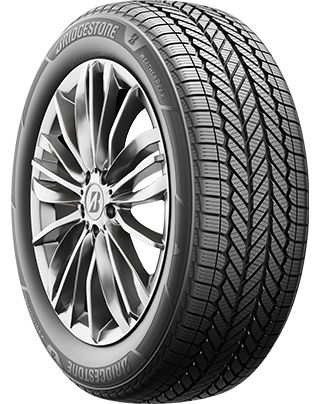
- Platinum Pact Limited Warranty
- All-Season
- Passenger Tires
 Potenza RE71RS
Potenza RE71RS
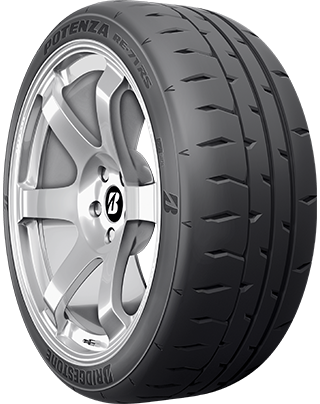
- No warranty
- Summer
- Performance
 DriveGuard Plus
DriveGuard Plus
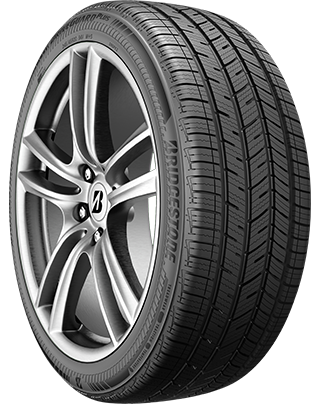
- Platinum Pact Limited Warranty
- All-Season
- Performance
 Potenza Sport
Potenza Sport
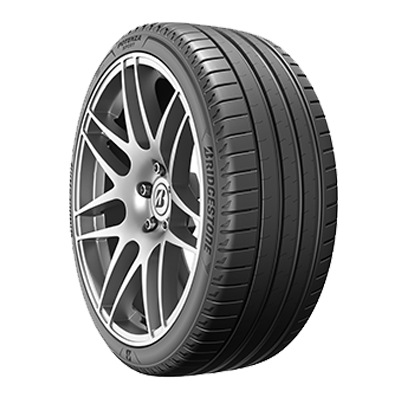
- Platinum Pact Limited Warranty
- Summer
- Performance
 Potenza Sport AS
Potenza Sport AS
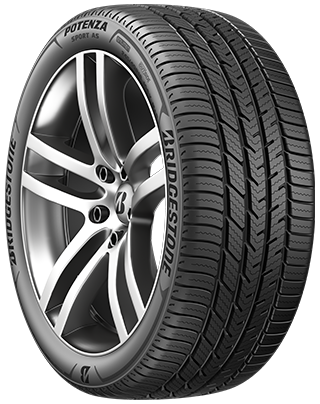
- Platinum Pact Limited Warranty
- All-Season
- Performance
 Affinity Touring S4 FF
Affinity Touring S4 FF
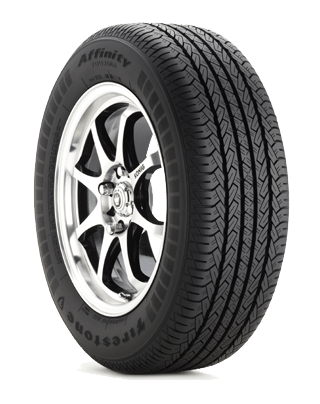
- Gold Pledge Limited Warranty
- All-Season
- Passenger Tires
 ALL SEASON
ALL SEASON

- No warranty
- All-Season
- Passenger Tires
 FT140
FT140
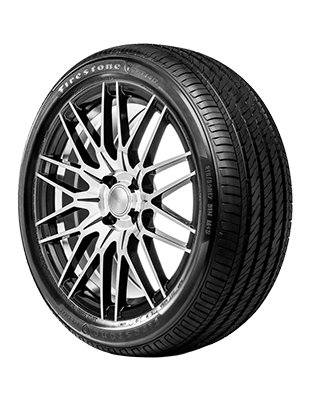
- No warranty
- All-Season
- Passenger Tires
 WEATHERGRIP
WEATHERGRIP
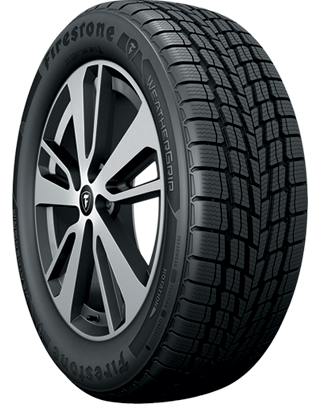
- No warranty
- All-Season
- Passenger Tires
 Winterforce 2
Winterforce 2
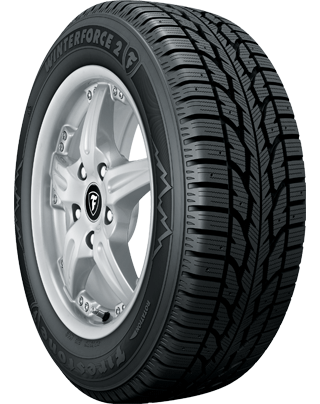
- No warranty
- Winter
- Winter
 Firehawk AS V2
Firehawk AS V2
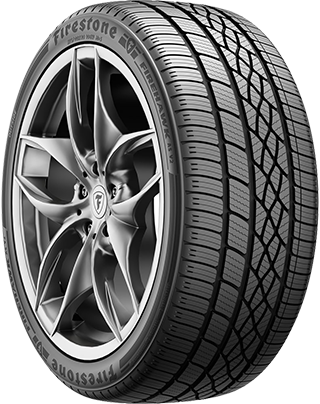
- No warranty
- All-Season
- Performance
 Firehawk Indy 500
Firehawk Indy 500
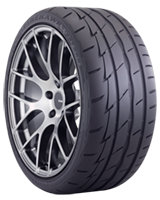
- Gold Pledge Limited Warranty
- Summer
- Performance

- No warranty
- All-Season
- Passenger Tires

- No warranty
- All-Season
- Passenger Tires

- No warranty
- All-Season
- Performance
 Extensa A/S II
Extensa A/S II

- No warranty
- All-Season
- Passenger Tires
 PROXES R1R
PROXES R1R
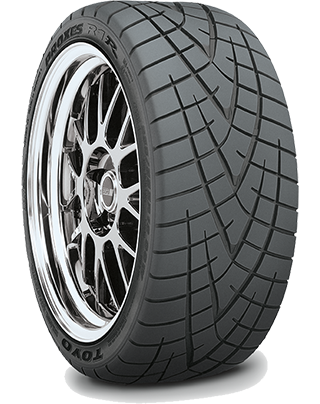
- No warranty
- Summer
- Performance
 PROXES Sport
PROXES Sport
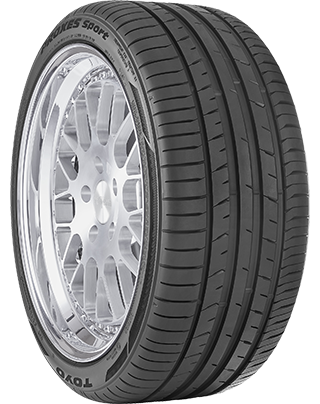
- No warranty
- Summer
- Performance
 PROXES Sport A/S
PROXES Sport A/S
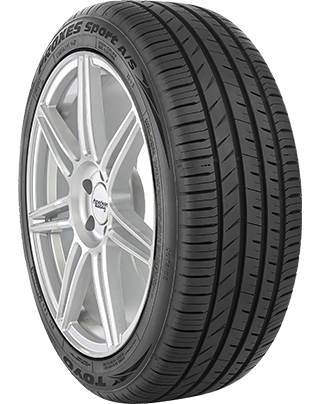
- No warranty
- All-Season
- Performance
Choosing 2010 Toyota Prius Tires
Apart from finding the right tire size, you also want to consider a handful of other factors when buying new Toyota Prius tires like how and where you drive, and how much you want to spend. When evaluating your driving conditions, think about where you live (countryside vs. city vs. mountains) and the kind of unexpected weather you're likely to experience. It's not uncommon for drivers in states that experience all four seasons to buy more than one set of tires. one for winter and one for summer. Other drivers prefer the convenience of all-season tires. They make one trip to the tire shop and they're pretty much ready for rain, light snow, or sun!
Next, consider your driving style. If you're an avid off-roader who yearns to pioneer new paths, you have very different tire needs than a highway commuter who doesn't hit the hills very often. Visit your local Firestone Complete Auto Care for help selecting the tire that's right for you, or get started by browsing tires that fit your Toyota Prius.
Installing Toyota Prius Tires
Firestone Complete Auto Care has been a leading tire provider for more than a century. We're your one-stop shop for tire installation, rotation, and ongoing maintenance! Buy 2010 Toyota Prius tires online and schedule your installation when it's convenient for you.
2010 Toyota Prius Tire Questions
-
Why check Toyota tire inflation? Even a tiny decrease in tire pressure could impact your safety and fuel economy. Maintaining proper tire pressure can help increase fuel economy, improve braking time, and boost tire lifespan.
-
Why are there numbers on the side of my Toyota Prius tires? Your tire sidewall numbers tell you the recommended load carrying capacity, speed rating, treadwear, traction, and tire size. Talk to a tire technician to learn how to read Toyota tire numbers.
-
Is there an easy way to check Toyota tire tread depth? Stay on top of your tire tread depth to help avoid a dangerous drive. You can check tread depth with a penny. Hold the penny so that Abraham Lincoln is facing you, then place your penny into a tread groove upside down. If you can see the top of Abe’s head, your tread is shallow and it might be time for new Toyota Prius tires. Grab a penny. Hold the so that Abe Lincon's head is facing you and his hair is pointing toward the ground. Then, place the penny into a tread groove. If you can see the top of Abe’s head, your tread is shallow and it might be time for new Toyota Prius tires.
2010 Toyota Prius Repair
Want more details? Choose a service below to read more about Toyota Prius repairs at Firestone Complete Auto Care.
Get Repairs for Your 2010 Toyota Prius
For most drivers, the words “car repair” don’t exactly spark excitement. We’re here to change that, though. At Firestone Complete Auto Care, we want to make car repair painless and hassle-free. When you come to us for 2010 Toyota Prius repair services, our technicians will take care of your Prius like it was their own. Before we begin any repair work, we’ll diagnose any issues and answer your questions about potential repair options. We’ll never recommend a repair we don’t think is necessary for your safety or the performance of your Toyota.
How Much Does Toyota Prius Repair Cost?
The cost to repair your 2010 Toyota Prius depends on which repairs are needed, prices of appropriate replacement parts, how much labor the repair will take, and your locale. And check back often — we update our deals regularly!
A few different aspects can influence repair costs for your 2010 Toyota Prius, like
2010 Toyota Prius Auto Repair Q&A
-
Do I still need scheduled maintenance even when nothing is wrong with my Toyota? The cheapest 2010 Toyota Prius repair is the one that isn’t necessary in the first place! Staying up-to-date with your car’s scheduled maintenance services is a great way to keep future repair costs low.
-
What's wrong if something feels 'off' in my Toyota? No, we’re not talking about finding the best jams on the radio! You know your car best, and you’re the first person who will notice if something doesn’t feel right (like new smells, sights, or sounds coming from your car). If you sense that something is 'off,' stop in for a Courtesy Check to have these symptoms checked out ASAP. Early action could help you prevent Toyota Prius repairs.
-
Are the repairs you recommend for my Toyota actually needed? Trust is more than just a saying on the wall. It’s a window underneath it. That’s why we won’t recommend services or repairs for your 2010 Toyota Prius unless we think they’re vital to your safety on the road.
2010 Toyota Prius Brake Repair
You might have a strong and reliable engine in your Toyota Prius. But if you can’t brake, it might as well be scrap metal. Don't wait if you're experiencing brake squeaks or a loss of braking power. Safe driving is difficult when your brakes are anything but their best. Plus, ignoring your brake problems can result in more damage and higher brake repair bills. Get your 2010 Toyota Prius brakes fixed at Firestone Complete Auto Care. We offer a variety of brake services like brake pad/shoe replacement, brake rotor/drum resurfacing, brake fluid exchange/bleeding, and brake caliper and wheel cylinder installation.
Toyota Prius Brakes Frequently Asked Questions
-
What is causing my Prius to shake when I brake? Your Prius could shake when you brake due to worn brake pads or rotors, warped rotors, loose or worn suspension components, or faulty brake calipers. You can always schedule a free brake inspection at the first sign of strange brake behavior.
-
How often do I need to replace my Prius brake pads? Brake pads generally last between 30,000 and 40,000 miles. Your driving can affect how long your Prius brake pads last, though. For example, mainly driving on highways and gradually braking can help increase the lifespan of your brake pads, and carrying hefty loads or riding your brakes can shorten it.
-
Should my Prius be leaking brake fluid when the car is off? Your Prius has a closed hydraulic brake system, meaning you should not have a brake fluid leak under normal conditions. However, parts of your brake system can wear out over time or become damaged, which can lead to a brake fluid leak.
Repairing Your Toyota Prius Drivetrain
Drivetrains for front, rear, and all-wheel-drive and 4WD vehicles are not all the same. You don't want to go to any random shop for drivetrain repair. You want to visit Firestone Complete Auto Care. We can help repair all of your 2010 Toyota Prius drivetrain components Your Toyota Prius may need driveshaft attention if you feel resistance when turning, heavy vibrations in your floorboards, clunks when shifting, or vibration as your vehicle accelerates.
2010 Toyota Prius Drivetrain Q&A
-
What are signs my Toyota drivetrain is damaged? Hear noises toward the back of your Toyota Prius? See fluid leaking? Having issues turning? These could all be signs of drivetrain damage you don't want to ignore. Take action quickly to catch repairs or replacements before something more severe happens.
-
Why is the malfunction indicator light (MIL) on in my Prius? A multitude of problems can activate your Prius’s malfunction indicator light (better known as the check engine light), including issues with the engine, transmission, sensors, electrical system, or connectors.
-
How concerning is a drivetrain malfunction in my Prius? Don't ignore a drivetrain malfunction in your Prius. As soon as you notice a problem, have it checked by a professional mechanic to diagnose the issue and carry out any necessary repairs. Driving with a faulty drivetrain is risky and may further damage your Prius.
Wheel Alignment for 2010 Toyota Prius
With an alignment service, adjustments are made to your Toyota Prius’s suspension system, the connection between the vehicle and the wheels. In an alignment service, calculated changes are made to the angles of your tires. This is so that your tires hit the road at an optimal angle for your vehicle’s performance — just as Toyota intended. Bring your 2010 Toyota Prius in for a wheel alignment and we'll start with an alignment check. Then, we’ll adjust the angles as needed until they match recommended measurements from Toyota.
Questions About Toyota Prius Alignment
-
What can knock my Toyota Prius out of alignment? Hitting a pothole or curb can alter your wheel alignment. So can general wear and tear over time.
-
When should you get a wheel alignment for your Prius? Check your Prius owner's manual for Toyota's recommended interval. It's generally a good idea to check your alignment every 6,000 miles or 6 months, depending on which comes first.
-
Do you need an alignment with new Prius tires? You likely aren't required to get an alignment when you put new tires on your Prius, but it's a super smart idea! An alignment can help ensure optimal tire wear, fuel efficiency, and handling. Still, you should reference your Prius owner’s manual for what’s recommended.
Engine Repairs for Your 2010 Toyota Prius
If your 2010 Prius engine needs repairs, our technicians will make sure you understand what’s going on before they start working on your engine. We make recommendations, but you make the final decision. If a repair isn’t urgent right now, we’ll let you know. If it's necessary for your safety, we'll make sure you understand that, too. We want to provide you with the information you need to make an informed engine repair decision. By choosing Firestone Complete Auto Care for Prius engine repairs and you can feel good knowing that we only use Toyota-compliant replacement parts such as the serpentine belt, oil gasket, fuses, or other parts.
2010 Toyota Prius Engine Q&A
-
Why does the check engine light come on when I start my Prius? It’s usually normal for your check engine light to turn on upon ignition. This is just your Prius testing its circuits. The dash light shouldn't stay on. If it does, you might want to bring your vehicle in for service.
-
Why is my Toyota Prius making engine noise? Unusual noises can signal a problem with your Toyota Prius engine. Tapping or knocking could mean you're low on oil. Whistling could mean a belt is misaligned or there's an intake leak. Squealing can indicate a loose fan belt, and grinding might be coming from the brakes, not the engine.
-
What could damage a Toyota engine? Certain driving habits can hurt your engine. These habits include driving on an empty fuel tank, revving your engine while the vehicle is in Park, or slamming the gas pedal while the engine is still cold. Steer clear of these habits to help protect engine performance and efficiency.
2010 Toyota Prius Tire Repair
If your 2010 Toyota Prius is in need of a tire inspection or possible flat tire repair, Firestone Complete Auto Care has your back. Our tire technicians can determine whether it's safe to plug and patch the tire, or whether it needs to be replaced. We’ll begin by taking a look at where the damage is, the type and extent of the tire damage, and how all of your tires are wearing.
If we determine that your 2010 Toyota Prius tire can be safely repaired, we'll follow three basic steps to repair it: (1) Separate the tire from the vehicle wheel, (2) fill the puncture to keep the moisture out, and (3) seal the inner liner with a repair unit to prevent air loss.
Toyota Prius Tire Repair Questions
-
What happens if I drive my Toyota on a flat tire? Driving on a flat tire is not a good idea. Your Prius engine will keep running with a flat tire, but you could damage your wheel by continuing to drive on a flat.
-
Can I use an emergency/temporary sealant to fix my Toyota's flat tire? Temporary sealants will solve your problem… for a little bit. If you’ve seen temporary or emergency tire sealant before (it usually comes in a can), it can be tempting to turn to this as a solution for your flat tire. Keep in mind that these fixes could buy you some time to get to Firestone Complete Auto Care for a proper repair, but they could also cause some harm in the process (for example, damage to your TPMS). Plus, using a product like this could void your tire warranty.
-
What is causing the tires on my Prius to keep losing air? Your Prius tires might keep losing air due to a leaking valve stem, puncture or hole in the tire tread or sidewall, or damaged wheel.
Maintenance for Your 2010 Toyota Prius
Take care of your Toyota Prius and it'll take care of you. With the right maintenance at the right time, your Prius has a good chance of hitting 200,000 miles or more.
Guide to 2010 Toyota Prius Scheduled Maintenance
There's no need to guess when it's time to get Prius maintenance, and no need to wait until something goes wrong. Rely on the recommended maintenance schedule that’s been created just for your 2010 Toyota Prius! This recommended maintenance schedule is written by the auto manufacturer, Toyota themselves. Driving conditions, climate variations, and other variables can affect which scheduled maintenance services you’ll need; however, there’s a good chance that your vehicle’s recommended maintenance services will include oil changes, tire rotations, brake pad replacement, filter changes, and fluid checks and exchanges. Staying on track with routine service appointments can help your Prius perform better, keep you safer on the road, and prevent common 2010 Toyota Prius problems.
Learn About Vital Maintenance Needs for Your Toyota Prius
Bring your 2010 Toyota Prius to Firestone Complete Auto Care for factory-recommended maintenance services and a skilled technician will start the appointment with a Courtesy Check. This Courtesy Check can establish a baseline of what may need to be addressed during your service appointment. Each Courtesy Check includes a free battery test and an inspection of your Prius's windshield wiper blades, head and tail lights, filters, fluid levels, tires, and alignment.
Firestone Complete Auto Care is your spot for 2010 Toyota Prius maintenance. So visit us regularly, or visit us urgently. Many locations are open on weekends and in the evening.
Questions About 2010 Toyota Prius Maintenance
-
When should I have Toyota Prius alignment checked? You know your Toyota Prius better than anyone else, so you’ll know if something doesn’t feel right while driving. Have your alignment checked (and adjusted if necessary) as soon as you notice a pulling steering wheel to prevent suspension damage or uneven tire wear.
-
When should I use high mileage oil in my Toyota Prius? Got 75,000+ miles on the odometer? Consider high mileage motor oil. High mileage oil is formulated to address the specific problems encountered by high mileage vehicles, or those with more than 75,000 miles. It can help reduce oil consumption, smoke, and emissions from older Toyota Prius engines.
-
Can I ignore dashboard lights on my Toyota? Don't ignore dashboard warning lights! Bring your Toyota Prius in for a diagnostic code scan as soon as a dashboard warning light flashes on, whether it's your check engine or battery light. Dashboard lights alert you to trouble under the hood.
Battery Size & Replacement for 2010 Toyota Prius
Need more info about Toyota Prius batteries?
| Battery | Engine | Warranty | Cold Cranking Amps | |
|---|---|---|---|---|
| L4/1.8L | Replacement months | Performance months | ||
| L4/1.8L | Replacement months | Performance months | ||
| L4/1.8L | Replacement months | Performance months | ||
| L4/1.8L | Replacement months | Performance months |
Car Batteries for 2010 Toyota Prius
Generally, car batteries last from three to five years. Don’t get stranded by your Prius’s car battery. Replace it regularly instead! Watch for signs that your current battery is getting too old or too weak. A slow engine crank, a blinking battery or check engine light, bloated battery case, corroded battery posts, and subpar electrical performance may all indicate that your battery is on its last leg.
You can also get a Free Battery Test at your local Firestone Complete Auto Care. Visit us for a complimentary battery check and, if needed, get your Toyota Prius a replacement battery. Car batteries are only one of our many strong suits. Our technicians are well-acquainted with Toyota’s service specs for Prius battery cold cranking amps and reserve capacity. Get help figuring out the battery size that's best for your Prius, and schedule an appointment today for a quick car battery replacement.
Commonly Asked Toyota Prius Battery Questions
-
Why doesn’t my Toyota Prius battery stay charged? A battery is in its final hour when it will no longer hold a charge. The battery may be too old. Or, you may have been leaving your car doors ajar and the cabin light at night. Stop by for a complimentary battery check at your favorite Firestone Complete Auto Care and get a handle on your car battery’s health.
-
How long can I expect my car battery to last? A car battery normally lasts three to five years, but this number can vary based on battery type, your driving habits, and battery maintenance.
-
What is the white, crusty stuff around my Prius’s battery post? If you notice white, crusty stuff around the battery terminals of your Prius, it's likely corrosion. A chemical reaction between battery acid and the air can create a white, powdery substance that builds up over time on the terminals. This buildup can interfere with the electrical connection between the battery and your Prius’s electrical system, potentially leading to poor performance, difficulty starting, and other issues.
Oil Changes for 2010 Toyota Prius
Toyota recommends changing your 2010 Prius’s oil at regular intervals. No matter the mileage, your Prius may need its oil changed ASAP if your check engine light is on, you hear engine knocking, smell oil inside the car, or notice excess vehicle exhaust. You may also need an oil change more frequently than Toyota recommends if you haul heavy loads, drive in dusty areas, enjoy off-roading, or go long distances at low speeds.
Whether you need high mileage oil, synthetic oil, or conventional oil, you'll find the right 2010 Toyota Prius motor oil at Firestone Complete Auto Care. Check your owner's manual and talk with a technician to select the right Toyota Prius oil, whether it's Quaker State® Advanced Durability™ conventional oil, Pennzoil® High Mileage Vehicle® motor oil, Pennzoil Platinum® Full Synthetic motor oil with PurePlus™ Technology, or Shell Rotella® heavy-duty engine oil. During your oil change service, a technician will change your Prius's oil, replace and recycle your used oil and oil filter, inspect the rest of your car’s filters, top-off important fluids, and visually inspect the rest of the vehicle. Let the experts take care of your Prius’s engine by making an oil change appointment today.
Oil Change Q&A for Your 2010 Toyota Prius
-
Why is the oil light on in my Toyota Prius? If you’re overdue for an oil change, it might trigger your Toyota Prius oil change reminder light. If the oil pressure light is illuminated, it could be due to low engine oil, a failing oil pump, a malfunctioning oil pressure sensor, or a clogged oil filter.
-
Can I change my Toyota oil on my own? Changing your own oil isn't as convenient as you might think. It requires special tools and old oil must be disposed of properly. Having your oil professionally changed reduces the chances of something going wrong with the oil change, but also with your vehicle down the road.
-
Why is my Toyota Prius spewing blue or gray exhaust smoke? Your engine could be burning oil due to a leak. It may be time for a pro to take a look. A leak can be caused by a variety of issues including faulty valve seals, blown piston rings, or damaged cylinder walls.
Engine Tune-Up Service for Your 2010 Toyota Prius
Periodic tune-ups can bring more power back to your Prius’s engine. Your nearest Firestone Complete Auto Care location has several options to choose from when it comes to Toyota Prius engine tune-up services. The first is the standard Firestone Tune-Up. The standard Firestone Tune-Up includes new spark plugs (and installation!), a thorough inspection of engine components, and a lifetime parts warranty*. Another service option pays special attention to the filters in your Prius. Specifically, we replace the fuel filter and air filter. The third tune-up option is a fuel system cleaning service, which is a three-step process that removes varnish, dirt, and carbon deposits on your Prius's fuel injectors, throttle body, and throttle plate. The result? Restored fuel system performance. Here’s something to remember when choosing services: the mileage and service history of your Prius can determine what kind of service it needs. Chat with a Firestone technician before you jump into a specific service to ensure your engine tune-up money is well-spent.
*Ask a Firestone Complete Auto Care teammate about full terms and conditions for warranties.
Common Engine Tune-Up Q&A for 2010 Toyota Prius
-
Will it hurt my Toyota Prius to drive with old spark plugs? Replace spark plugs on time or about every 30,000 miles or so. Spark plugs are small but mighty. The spark of electricity that the plug emits across a small gap creates the ignition for the combustion needed to start your car. Without that spark, your car won't start.
-
What does a puddle underneath my Toyota Prius mean? Puddles could indicate an oil leak, coolant leak, or brake fluid leak– all of which can critically hurt your engine. Have your engine inspected as soon as you spot a pool of liquid in your usual parking spot.
-
How often do Toyota Prius fuel injectors need to be cleaned? Factors like fuel type and driving conditions can affect how frequently you need to clean your Prius fuel injectors. Some manufacturers recommend a fuel system cleaning as part of routine maintenance, or as needed if your vehicle is showing signs of poor fuel system performance.
2010 Toyota Prius Suspension Service & Repair
During the first few years you had your 2010 Toyota Prius, you and your passengers probably enjoyed a ride that was smooth and balanced. Now, however, things are starting to feel a little rough. Maybe your Prius jolts, sways to one side, or makes an unusual noise when going over a speed bump. The first sign of trouble is the best time to bring your 2010 Toyota Prius in for steering and suspension services. We'll get to the root of the problem and, if your Prius suspension system needs repair, we’ll go over the services you need and how much they will cost before we do any work.
2010 Prius Steering & Suspension Q&A
-
Why does my Toyota Prius bounce so much? Excessive bouncing in your Toyota Prius might be due to damaged struts or shocks that are unable to absorb road bumps effectively, causing your vehicle to feel more like a pogo stick than a smooth ride.
-
Why does my Prius front end dip forward when I brake? As you brake, the forward momentum of your Prius combined with its weight sends a ton of force to its front end. A damaged or worn suspension system can cause the front end to compress and dip even further.
-
Does tire pressure and tread depth impact my Toyota's suspension? Proper tire care can reduce strain on the suspension system, and also alert you to the need for new tires. Uneven tire wear is one sign of steering and suspension system problems, but it can also contribute to more.
Convenient & Local 2010 Toyota Prius A/C Service
Our technicians will work to solve your 2010 Toyota Prius A/C problems to the best of their ability. During an A/C performance check, we'll determine the condition of your 2010 Toyota Prius A/C system to see if repair work is required. We’ll test overall system performance, check for any leaks, and measure the system pressure.
Let's say we repair your 2010 Toyota Prius A/C system. We will also perform an A/C evacuation and recharge. During this process, a technician will remove the old refrigerant from the A/C system. Then, they’ll perform an evacuation (also known as a discharge) on the entire system per Toyota guidelines. To finish, we’ll add new refrigerant to recharge the A/C system.
Questions About 2010 Toyota Prius A/C Systems
-
Why is my Prius A/C blowing hot air? Maybe your A/C starts cool but then gets warm. Or maybe it never gets cold in the first place. Either way, your A/C troubles could be traced back to a clogged expansion valve, faulty compressor clutch, blown fuse, or leak.
-
How does my A/C system get a leak? Over the years, the rubber seals and gaskets in your Prius’s A/C system naturally degrade. Moisture can get into the system and cause a malfunction, or parts can simply wear out so that your system no longer seals properly.
-
Why does my Prius’s A/C only work when the car is moving? There could be issues with one or more components in the air conditioning or electrical system. Your Prius may have a faulty cooling fan or low refrigerant.
2010 Toyota Prius Transmission Service & Repairs
The transmission delivers power from the motor to your wheels so that you can drive at your desired speed. Because your transmission is responsible for converting the right amount of power into the right amount of speed, a tiny transmission issue can take a major toll on your car’s performance. 2010 Toyota Prius transmission problems can show up as shifting delays, grinding when accelerating, a feeling of shakiness, or whistling noises and a burning smell coming from under the hood. If you don’t pay attention to Toyota Prius transmission trouble you might notice your fuel economy decrease or find that you can't drive your Prius at all. Our technicians know how to service your 2010 Prius up to Toyota-recommended standards. As soon as you suspect something’s wrong with your Prius’s transmission, book an appointment at your local Firestone Complete Auto Care to help diagnose, treat, and prevent major transmission issues.
2010 Toyota Prius Transmission Q&A
-
How often does my Prius transmission fluid need to be checked? Maintaining your Toyota Prius transmission fluid is one of the best ways to maintain your transmission's health. A general rule of thumb is to have your transmission fluid checked and changed about every 30,000 to 60,000 miles, but that timeline can change if you're hard on your Toyota. Leaks or low transmission fluid are easy to spot and affordable to repair.
-
Can my Toyota Prius leak transmission fluid? Over time, transmission fluid can leak from your Toyota Prius, potentially causing transmission problems. A transmission fluid leak may be caused by a damaged transmission pan, faulty transmission cooler lines, worn-out seals, a cracked transmission housing, or an overfilled transmission.
-
Should I avoid driving my Toyota Prius if there is a transmission fluid leak? Driving with a transmission fluid leak is not recommended. Transmission fluid is essential to the proper operation of the transmission system, and a leak can cause serious problems, including reduced performance, overheating, and potentially transmission failure.
Vehicle Inspection for 2010 Toyota Prius
At Firestone Complete Auto Care, we perform a multi-point Courtesy Check during any vehicle service. First, a technician will pop the hood on your Toyota Prius and test the battery to see how much charge it has left – and determine if it may fail in the near future. After we’ve inspected your Toyota Prius’s battery, we’ll visually inspect your windshield wiper blades, lights, filters, alignment, tires, hoses, belts and fluid levels.
While every visit to your local Firestone Complete Auto Care includes a Courtesy Check, we can also dig deeper and perform a Complete Vehicle Inspection on your 2010 Toyota Prius if you prefer. A Complete Vehicle Inspection includes everything in a Courtesy Check, plus a hands-on examination of your steering and suspension system, brakes, and exhaust components. This inspection is aimed at informing you of any major problems that could wreak havoc on your 2010 Toyota Prius if left unaddressed.
In some cities or states, you may be able to complete your vehicle’s safety tests or state inspection at your nearest Firestone Complete Auto Care. Specific requirements for these types of inspections vary by state.
2010 Toyota Prius Vehicle Inspection Q and A
-
When does my Toyota Prius need an inspection? If you’ve noticed something that doesn’t feel quite right in your car lately, a Courtesy Check could give you peace of mind. We can help you get to the bottom of strange engine noises, a jerky steering wheel, or an engine that's hard to start.
-
Can you fix my 2010 Toyota Prius so it will pass a state inspection test? Don’t panic! Come in for a complete inspection today and we’ll find (and repair) the root cause before you have your vehicle retested.
-
When’s the best time to have a complete vehicle inspection performed on my Toyota Prius? The best time to have a complete vehicle inspection done on your Toyota Prius is when you notice something is off but you can’t locate the issue yourself. Schedule an inspection if you experience any unusual symptoms, such as unfamiliar dashboard indicators, strange engine noises, or steering changes. An inspection can be especially beneficial before a road trip for the simple peace of mind. You can feel confident in your adventure!
Radiator Service & Repair for 2010 Toyota Prius
Staying on top of routine radiator maintenance for your 2010 Toyota Prius is a huge factor in the longevity of your engine. Toyota recommends that you replace coolant (also called antifreeze) at certain intervals, but it’s a good idea to keep your eyes open for any indication that your radiator is failing. You might be driving around (or about to be stranded) with a failing radiator if you see coolant leaks under your car, high engine temperatures, or a dashboard light that indicates low coolant.
At Firestone Complete Auto Care, we start by performing a thorough inspection of your Toyota Prius cooling system. Then, we’ll move on to a machine-powered coolant exchange. Finally, we’ll refill the flushed sealants, lubricants and chemicals, then do a pressure check to catch any possible leaks. From the heater core to the radiator cap, we’re here to give your 2010 Toyota Prius the top-notch service it needs.
Questions About Toyota Prius Radiators
-
What does an illuminated coolant temperature light mean for my Toyota? f the coolant light illuminates on your dashboard, your engine could be overheating. Pull over to a safe area and wait for the engine to cool down. Then, head to your nearest Firestone Complete Auto Care for a coolant system check.
-
What is causing my Prius to overheat? If your Toyota Prius engine overheats, it could be because of a clogged radiator, a damaged thermostat, a faulty cooling fan, a malfunctioning water pump, or low coolant levels.
-
Why does the radiator in my Prius sound like it’s rumbling or boiling? There could be air pockets in your Prius’s cooling system. You might also have a clogged radiator or faulty radiator cap (this last one is an easy fix!).